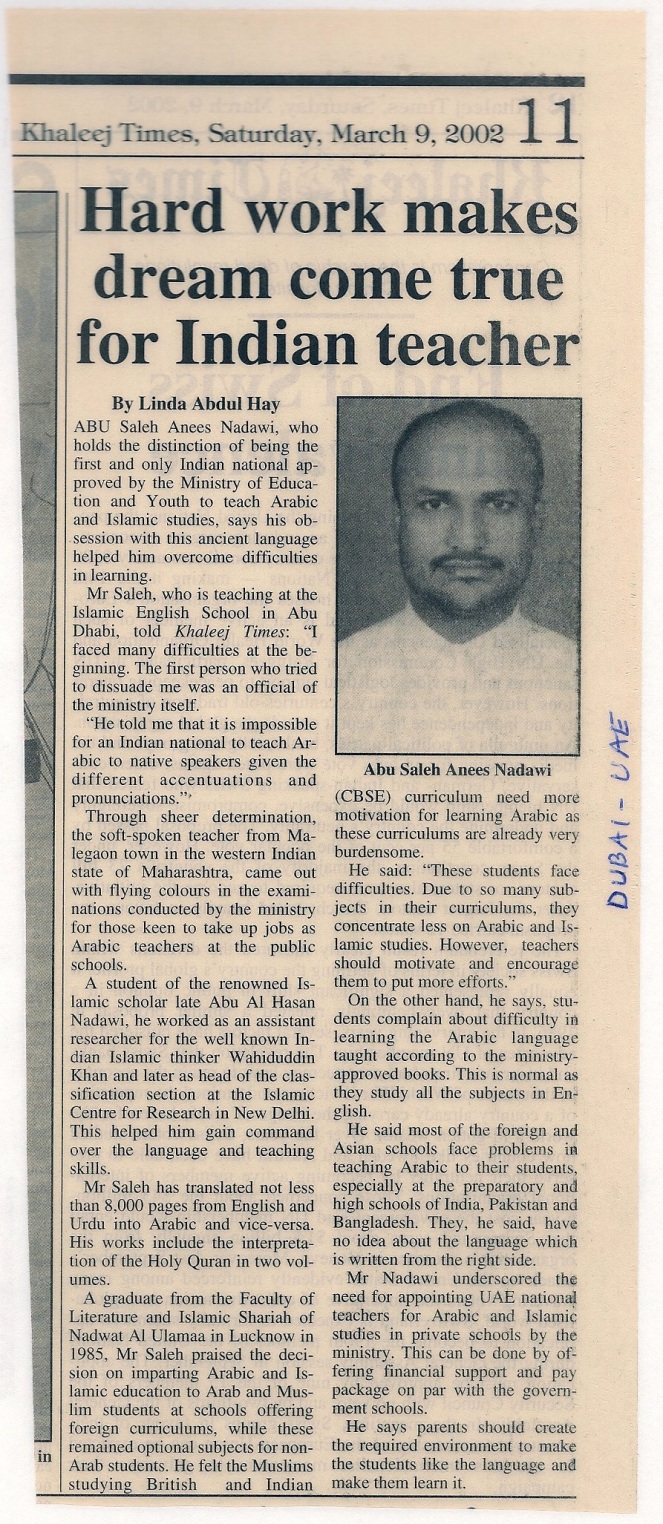This is a portion of my diary:
Wednesday,
1st Muharram 1405-26 Sep. 1984
Nomaniya Hostel-Nadwah-Lucknow
(Originally penned in Urdu)
Shared with a hope that it may motivate EBUC® group members to redefine Hijrah for themselves and strive to make the new Hijri Year 1437 the best ‘Islamic Year’ of their own life by Almighty’s Grace.
-————–——
“Just came back from Pata Nala after attending the inaugural ‘Jalsah’ organized by ‘Anjuman-e-Tahaffuz-e-Namus-e-Sahabah’. My senior roommate informed that he never miss a single day this 10 day series of Jalsahs which is annually conducted to “defend” Sahabas’ dignity particularly the first Two Righteous Caliphs against Shi’ahs’ ‘Tabarra’ and other allegedly ‘malpractices’ they do in Imam Barah area during the first 10 days of Muharram….Speeches as usual were fiery and inviting the audience to being ever ready to die for ‘protection of Sahaba’s’ honor and dignity’. This is first time I realized why so often we hear about clashes between the two Muslim sects in Lucknow that sometimes even requires police intervention.
Regardless of this sad aspect, my mind since dawn of the 1st Muharram was focused on exploring some meaningful relevance of Hijrah to me and other Muslims today.
First Muharram as a begging of New Islamic year is basically related to commemorate an epoch making event of Islamic and human history and that should be the focal point of reflection on this occasion instead of any other event. And that is Prophet’s migration from Makkah to Madinah which has also been highlighted in the Quran.
Prophet’s Hijrah was both a geographical shift as well as a Strategic Action Plan to march forward with the Islamic mission. Each and every step of this plan was well thought of and divinely guided. Hence, it must have an everlasting relevance to all Muslim generations to come thereafter.
Hijrah, in the sense of ‘geographical shift was obligatory for all contemporary Muslims till Conquest of Makkah but after that Prophet himself stopped this process as he declared ” لا هجرة بعد الفتح” that is ‘there no more migration from Makkah or elsewhere to Madinah’.
However, Hijrah in the sense of a ‘strategy’ for intellectual, moral and social transformation at individual as well as community levels is a continuing process. This aspect has been defined by the Prophet as:
‘المهاجر من هجر ما نهى الله عنه’
‘The true Muhajir/migrant is one who quits whatever is forbidden by Allah.’
In application this broader and perpetual aspect of Hijrah would mean a range of different things for individuals, families and groups they should ‘quit’ in order to do what they have got to do as Muslims and subsequently get closer to Allah. This act of consciously ‘quitting’ what ought not to be done for the sake of doing what ought to be done will be counted as their Hijrah.
Thus, every Muslim individual or group willing to initiate self-renewal or self-transformation has to ‘re-define’ Hijrah within one’s own situational context. One has to simply ask oneself: Am I living here and now up to the Islamic standards and values? If not, then what is there within me or my surroundings that I am preoccupied with instead? As soon as one honestly finds the answer to this question, one’s intellectual, moral and social Hijrah begins instantly.
For some it would mean to quit some useless or rather harmful habits such as: laziness, procrastination, late sleeping and late rising, smoking, over spending on food, cloths and luxuries. For others it would require to repent/Tawbah from sinful tendencies and behavior. While still others find their Hijrah in saying goodby to some ‘friends’ or seemingly innocent hobbies or parties or family -get-togethers to minimize distraction and maximize concentration on the things that matter the most. And so on.
-—————
